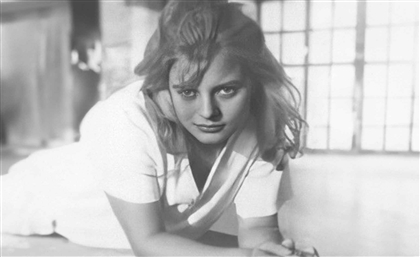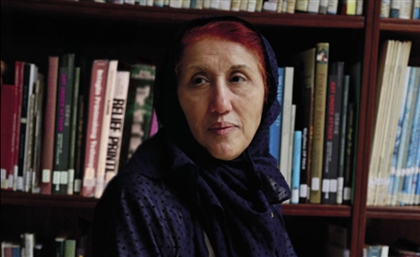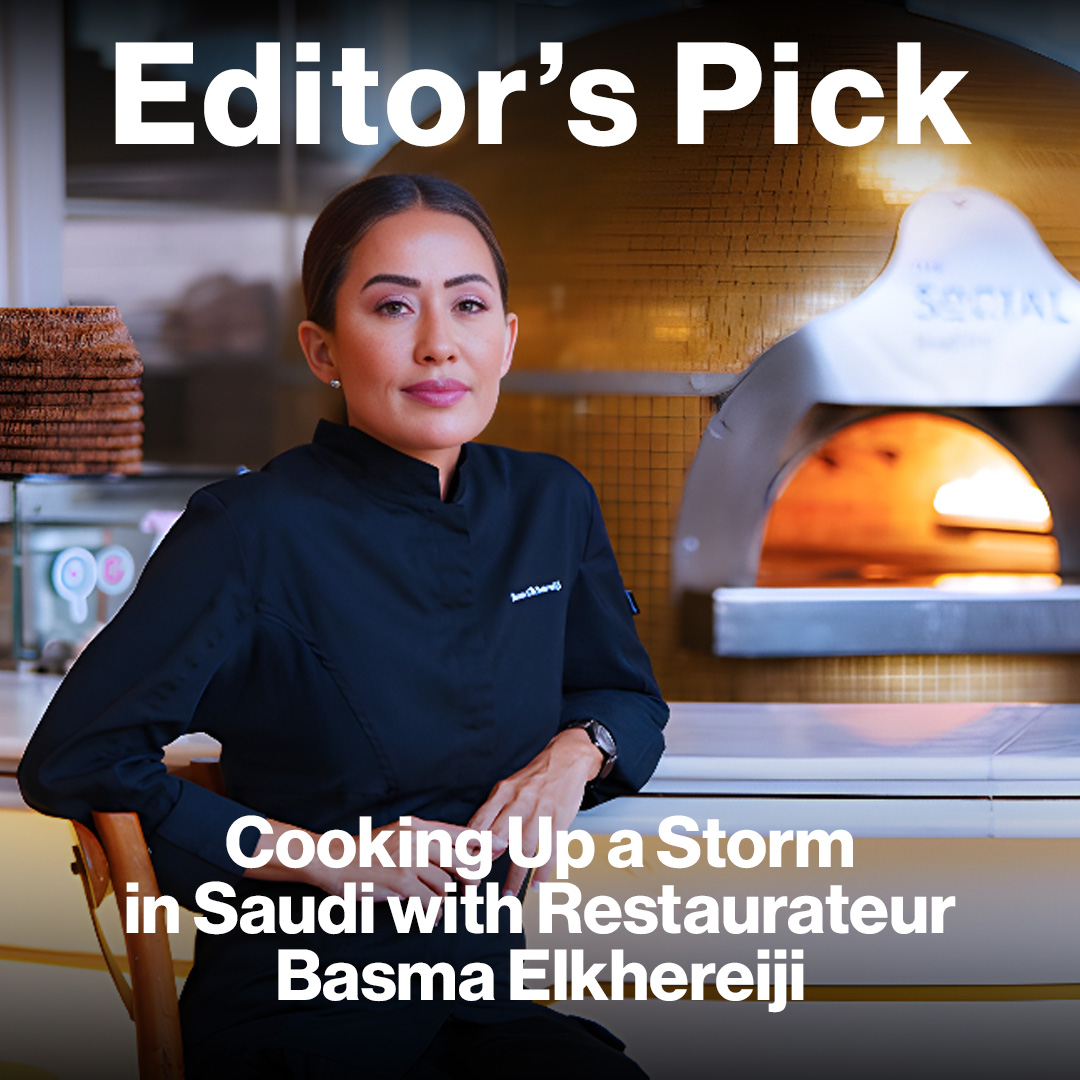Oakenfest: From Mountain Camp to Lebanese Hub for Indie Artists
Lebanese activist and founder Oakenfest Elsa Saadé shares how the festival’s accidental inception shaped its vision.

In 2013, while planning a camping trip to the mountains in Lebanon's Lehfed with a couple of friends, one friend asked if they could invite their musician friends. What was intended as a miniature getaway to disconnect from urban life birthed a much-needed space for independent musicians and artists away from the bustle of the mainstream. That space, Oakenfest, now a decade later has grown into a music festival first and foremost but also a space for the alternative. Across music and beyond, it is an open, shared stage.
In this exclusive SceneNoise interview, we speak to the founder, Lebanese activist Elsa Saadé about this journey, what Oakenfest has grown to represent over the last ten years and what she’s most looking forward to in its upcoming eighth edition, scheduled for July 19th to the 21st.
SceneNoise: Tell us about the first edition of Oakenfest
Elsa Saadé: The first event was incredibly genuine and intimate, culminating in a group jam session where everyone felt engaged. Anyone could take the stage - it was a pleasantly surprising, humble, and beautiful experience. In Lebanon, it wasn't common to go to the mountains and listen to music.
Afterwards, people began asking when the next event would be, so we started a page.
We're committed to preserving the authenticity of our festival. We're still a group of friends working together voluntarily - artists and musicians. We strive to maintain that genuine atmosphere. Many tell us they feel at home among friends, and that's exactly how we want it to feel.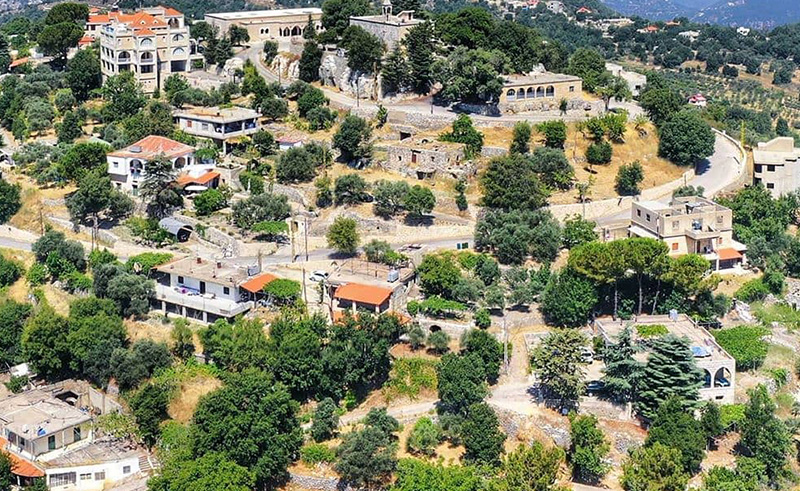 SN: How do you think that sense of genuineness manifests in the festival?
SN: How do you think that sense of genuineness manifests in the festival?
ES: The festival is laid-back, focusing on art that resonates with attendees and artists alike. When we faced challenges during COVID-19 and the August war, making it economically and politically difficult to continue. Emotionally, we weren't in the best place either. We had to reconsider what Oakenfest truly represents. Its accidental inception made us prioritise the needs of attendees and artists. Last year, we reflected deeply on why the festival has grown and garnered such love.
Its authenticity lies in disconnecting from the city in a small Lebanese town. We remind people to pause, reconnect with nature, and appreciate art - to halt time for three days and savour life's simplicity, which is easily forgotten.
As Arab countries, we endure significant challenges. Recently, while with a group of Arab individuals, someone suggested we only reconnect through wars and miseries. I disagreed, believing we share rich histories and cultures that deserve celebration. Oakenfest embodies exactly that - an ode to art, identity, and culture in a contemporary context.
SN: How do you approach the curation of the artists and the lineup?
ES: We primarily showcase alternative Arab artists who express themselves uniquely, diverging from the tendency to mimic the Western world, which is particularly prevalent in Lebanon's music scene. There was a moment when musicians paused to ask how they could authentically express their identity through music, leading to a fusion of Arabic lyrics with electronic sounds. This blend encapsulates the essence of the entire festival.
Featuring both emerging talents and established musicians, last year we hosted Maryam Saleh, Zaid Hamdan and Bou Nasser. We always ensure emerging artists share the stage with established ones, offering them broader exposure.
Our aim is to curate musicians from diverse backgrounds, representing different musical spheres. In Lebanon, especially in Beirut, various musical communities exist within their own ‘bubbles’. We want to bring them together in one venue.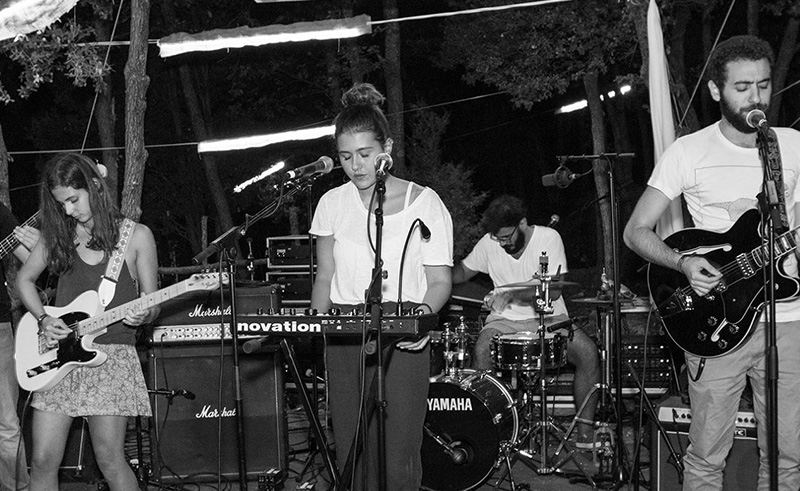 SN: Besides music, the Oakenfest has a broad artistic and cultural focus, tell us about this year’s programme.
SN: Besides music, the Oakenfest has a broad artistic and cultural focus, tell us about this year’s programme.
ES: This year, we're enriching the festival experience with a packed schedule over three days. It kicks off Friday night with a collaboration featuring ‘AFLAMUNA’, a short film on traditional Palestinian dabke, followed by a discussion. We chose this film for its exploration of the intersection between music and rural life. The evening continues with a party featuring Nadine, blending alternative Arab pop and hip-hop.
The next day begins with a hike just a 10-minute drive from the festival grounds, allowing attendees to explore the picturesque surroundings and the town itself, guided by locals from Lehfed. Following the hike, a series of activities and workshops commence.
The activities and workshops are curated to fuse music with cultural experiences, reflecting our identity as a cultural festival. We aim to introduce visitors to the town through storytelling sessions on the philosophy of rural life in Mount Lebanon. Workshops include Palestinian embroidery and a collaboration with Barzzakh, a library in Beirut, launching a mobile library featuring books curated around the festival's themes.
SN: How would you describe the Oakenfest crowd?
ES: Most of our attendees come from artistic backgrounds and share a genuine interest in the festival as a space - it's not a typical pop festival in Lebanon. While other festivals focus on commercial pop artists or full DJ lineups, we offer a blend of both. Our audience isn't easily defined. They're not necessarily the typical Lebanese crowd or the hipster camping enthusiasts. They're followers of the alternative scene.
The last edition in 2018 attracted young people who have been aware of the festival since then. Many who attend Oakenfest are loyal attendees, they wait for it every year.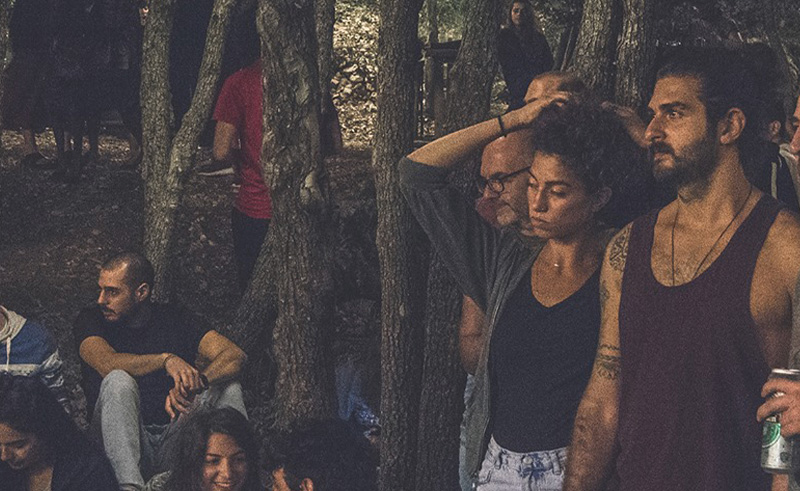 SN: The festival is self-funded, how do you work to maintain its ethos throughout the years?
SN: The festival is self-funded, how do you work to maintain its ethos throughout the years?
ES: I ask myself a lot why I’m doing Oakenfest, and why I work to gather funds for the festival. I've been obsessed with music since I was a baby, constantly seeking underground sounds. When Oakenfest began unexpectedly, my search for underground music expanded to include Arab countries, with the same level of care for the artists.
I learned to play the drums for a couple of years, and every year I consider returning, but I'm too shy to showcase my skills. Singing in public is also daunting for me. Perhaps that's why, out of my love for music, I strive to share and present it in unconventional ways.
Music holds a deep significance in my family. During my dad's final moments, we played Fairouz for him. Music was the one thing that brought him comfort - he smiled during that time.
- Previous Article Tree Cutting in Cairo Now Requires Governor Approval
- Next Article Travel Across History on Egypt's Most Iconic Bridges
Related Articles
Trending This Week
SceneNow TV
Events Calendar





